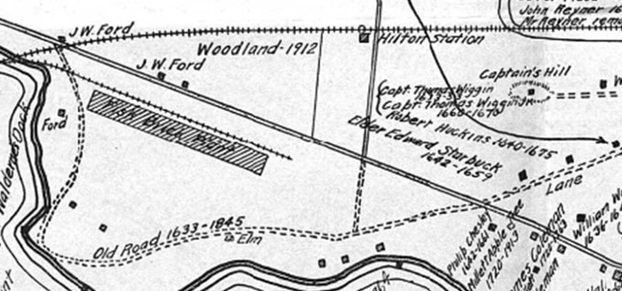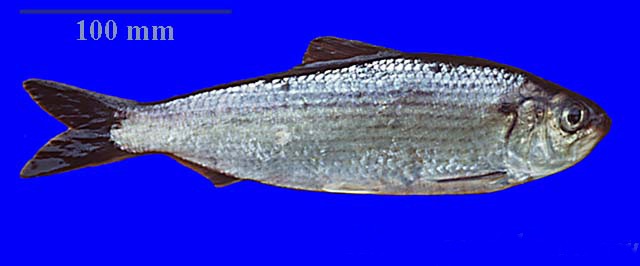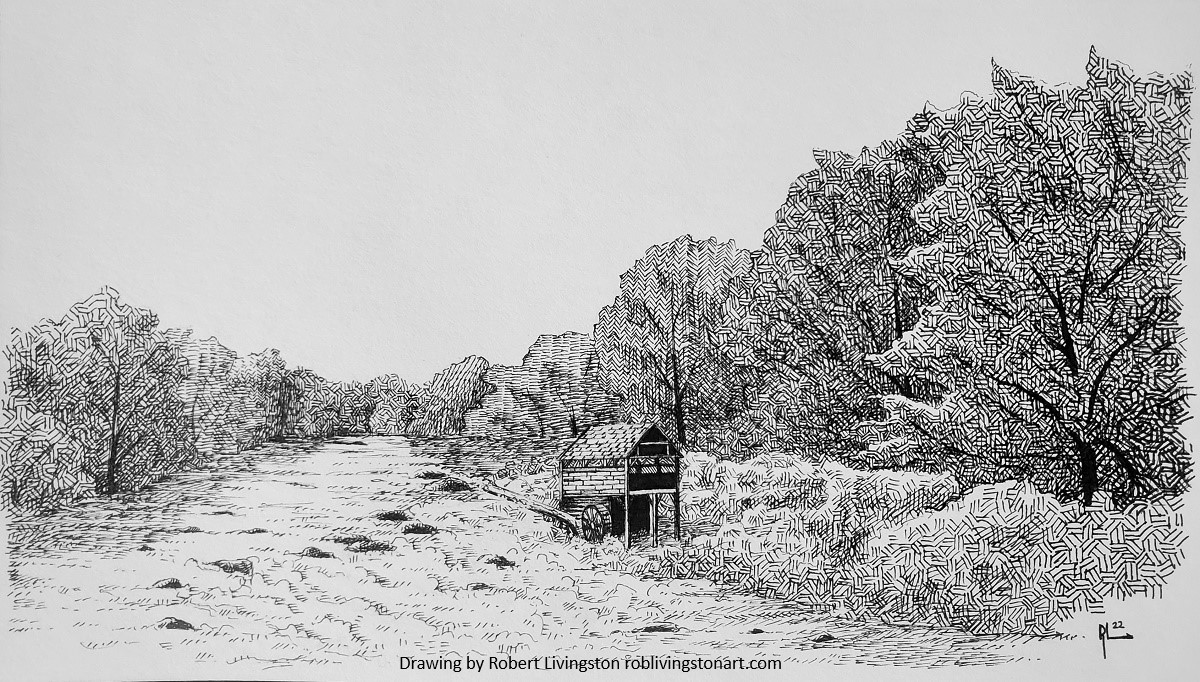There are several documents which show how Edward made a living after immigrating from Starbucky Territory to Dover and then Nantucket. He primarily chose jobs requiring skills related to water resources and made use of land he was granted or leased.
Dover:
Though no original record exists that shows Edward being granted his town land, records can prove his residence at Dover by 1640.[1] In 1642, Edward was named as a “dweller along high street” by Dover historian John Scales.[2] The 1923 map from Scales’ book shows Edward’s property on the “Old Road” as it was designated. This map covered much of Dover Neck and today Dover Point Road is nearly identical to “Old Road,” as it was called on the map. (See Dover Point Road and its branches on google maps.) It is highly probable Edward’s town property was exactly where the map indicates. Edward and his family would likely have had a garden and a few animals on their homestead property. The rocky soil made large scale farming difficult, so early livelihoods came from other work.

Edward acquired additional land at some point in 1642. The unappropriated area along the Back River (on the west side of Dover Neck, opposite the original lots) was divided amongst those early settlers of Dover who remained. Edward added to his property with “Lot 14.”[3] These were twenty acre lots with the waterfront side approximately forty poles wide (also called a perch or rod equaling about sixteen and a half feet per pole) and extending eighty poles up into the woods.
On 30 August 1643, Edward acquired more land including eighty acres of upland on both sides of the Fresh River and some marshland, partially discovered by Edward himself.[4] This was one of many times Edward would acquire waterfront property on which he could conduct business.
At a Dover town meeting on the 24th of October (then called the 8th month) of 1643, Edward added to his holdings when the town of Dover granted him the marsh (unspecified acreage) in the Great Bay, which had been the land of Phillip Scanden (or Swadden).[5] Great Bay, as it’s still called today, is south and west of where Edward’s homestead stood, the opposite direction of the land he received two months earlier. The only way to get to the marsh was by water as no bridges existed in the 1640s to cross that expanse of river and bay. Even without knowing Edward was raised in an area of England full of rivers, his choice of Dover and the land he acquired shows he would have needed a working knowledge of how to use running water and how to get around on rivers. He may even have known how to build the boats that could traverse the waterways of Dover.
It did not take long for evidence of Edward’s river ventures to show up in the Dover records. On the 20th of April 1644 (transcription), the town appointed Edward, Richard Waldern, and William Furber as weirsmen for Cochecho Falls and the Cochecho River for the rest of their lives or for the term of their residence in Dover.[6] If they died or left, the weir reverted to the town’s jurisdiction. The falls were mostly north and slightly west of Edward’s homestead.

But the grant was not without strings. In exchange for the exclusive privilege of having the weir, the men paid a “rent” to the town each year of 6000 alewives with the first of the fish going to the church.[7]
Apparently, alewives were cheap as the record goes on to state the selling price or “common price” was set at three shillings per thousand. In addition, the first salmon was to go to the pastor.
Edward and the weirsmen were further instructed to be diligent in catching the fish, and that they were each to have 6000 of them for their own. Another condition for their weir operation was that the church officers were to be served with fish first and that other officers in the commonwealth were to be given fish as well. A rather curious clause is that the “moste antient inhabetants” (most ancient inhabitants, presumably earliest settlers or older town residents) were to be served with fish, every man a thousand fish equally divided, or as many as every school of fish afforded. The weirsmen, however, were to keep the fish that were not collected by the designated recipents. Perhaps even better, the weirsmen were to be left to their business. A fine of 19 shillings could be imposed on anyone who molested the weirsmen while doing their work.
[1] “Winthrop Papers,” database with images, American Ancestors (www.americanancestors.org : accessed 10 August 2021), Edward Starbuck (vol 4, p. 179).
[2] John Scales, History of Dover, New Hampshire (Manchester, New Hampshire: John B. Clarke Co, 1923), ix.
[3] Dover, New Hampshire, Town Records 1647-1753; digitized images, City of Dover, New Hampshire (https://www.dover.nh.gov/government/city-operations/finance/city-clerk-tax-collection/historic-dover-records/ : accessed 10 August 2021), unpaginated, approx. p. 181.
[4] Dover, New Hampshire, Town Records 1647-1753; digitized images, City of Dover, New Hampshire (https://www.dover.nh.gov/government/city-operations/finance/city-clerk-tax-collection/historic-dover-records/ : accessed 10 August 2021), 5.
[5] Dover, New Hampshire, Town Records 1647-1753; digitized images, City of Dover, New Hampshire (https://www.dover.nh.gov/government/city-operations/finance/city-clerk-tax-collection/historic-dover-records/ : accessed 10 August 2021), 5.
[6] Dover, New Hampshire, Town Records 1647-1753; digitized images, City of Dover, New Hampshire (https://www.dover.nh.gov/government/city-operations/finance/city-clerk-tax-collection/historic-dover-records/ : accessed 10 August 2021), 4.
[7] Wikipedia (www.wikipedia.org,) “Alewife,” rev 10:43, 3 October 2022.
